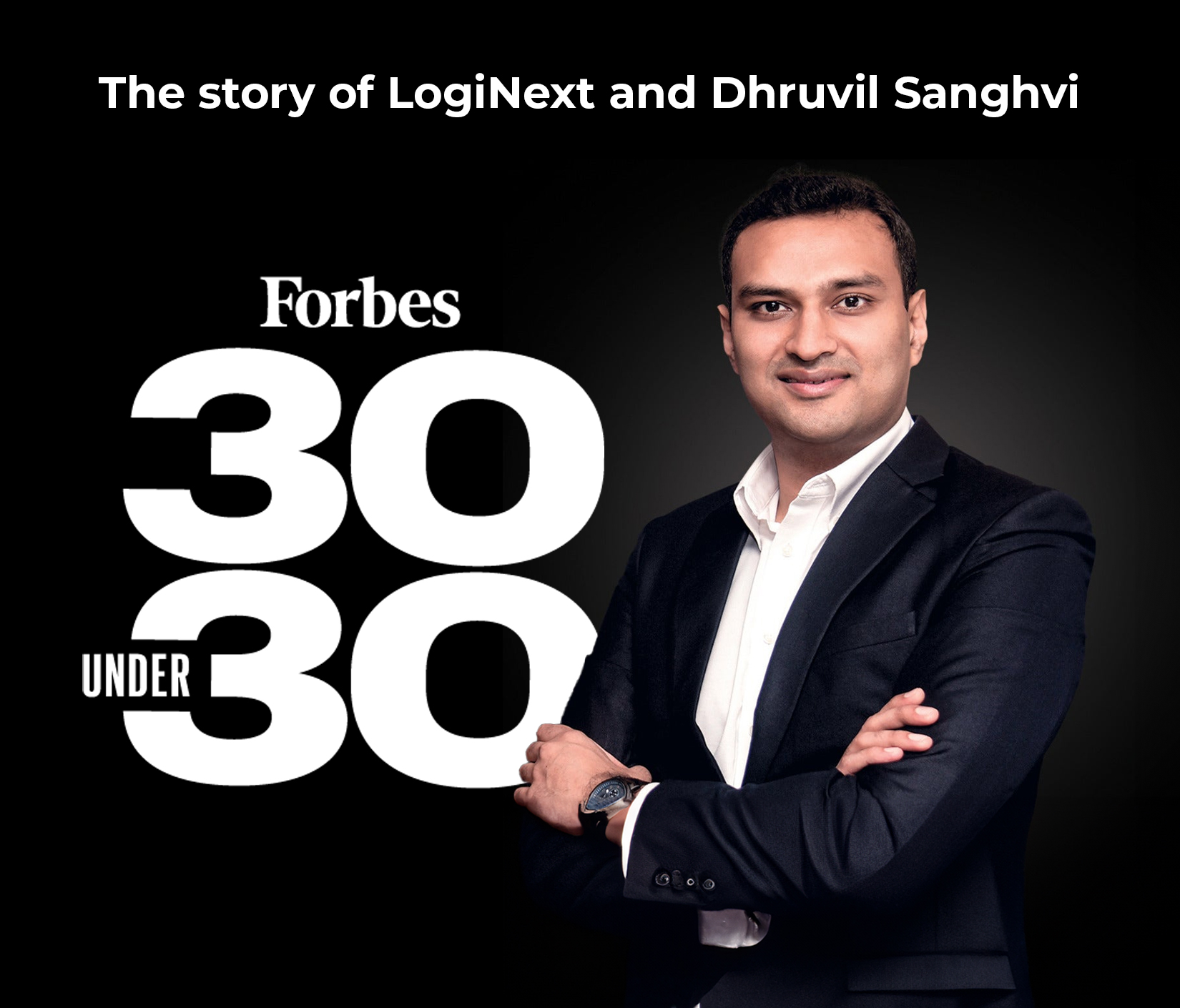
The SaaS Revolution in Logistics: How LogiNext is Transforming Delivery Operations
In today’s fast-paced world of technology and startups, every journey has its own challenges, breakthroughs, and lessons. A few weeks ago Dhruvil Sanghvi was contacted by the Master’s Union as they were making a case study on LogiNext. Its impact on the world of logistics, the journey to become a giant, the platform and core entrepreneurial spirit that drives the company.
This was a good opportunity for Dhruvil as here he could share not only the tech behind LogiNext but also to dive into the “why” and “how” of building a business that’s changing the way logistics works. This was the platform to inspire future leaders and innovators. The blog below highlights the interview and provides a gist about the same.
The Story of LogiNext and Dhruvil Sanghvi

Founded in 2014 by Dhruvil Sanghvi, a Forbes “30 Under 30” entrepreneur, LogiNext has rapidly emerged as a key player in logistics automation. With over 200 clients, including global brands like McDonald’s, Domino’s, and Malta Post, LogiNext has become essential to their logistics solutions.
Dhruvil’s experience in e-commerce and cloud technology exposed inefficiencies in logistics, particularly in home delivery. His vision: digitize, optimize, and automate delivery processes across sectors. Today, LogiNext operates globally, serving clients in major markets such as New Jersey, Dubai, Jakarta, Mumbai, and Delhi. The company has raised over $100 million in primary capital, fueling its rapid growth.
LogiNext’s Business Model
LogiNext’s core offering is a SaaS platform for logistics management, charged via a subscription model based on the number of orders processed. This model allows businesses to scale logistics operations without heavy initial investments in technology.
For example, McDonald’s uses LogiNext’s platform to manage deliveries. When a customer places an order through the McDonald’s app or a third-party service like Swiggy, the system automatically assigns the order to the nearest available delivery rider. This streamlines operations, ensuring timely deliveries and enhancing customer satisfaction.
With over 200 enterprise customers processing 15 to 20 million orders annually, LogiNext generates significant revenue. However it invests the same money to stay ahead of the curve, as Dhruvil points out:

The Role of AI in Logistics
As the logistics industry evolves, the integration of Artificial Intelligence (AI) has been transformative. LogiNext employs AI-driven route planning algorithms, allowing businesses to optimize delivery times and minimize inefficiencies. By leveraging real-time traffic data, driver behavior, and customer preferences, the platform streamlines operations to meet diverse needs.
A prime example is in the food and beverage industry. LogiNext ensures that items requiring different temperatures, like cold drinks and hot coffee, are delivered separately to maintain quality. This customization is essential for industries where product integrity is directly tied to customer satisfaction.
Marketing and Securing the First Client
In the SaaS sector, marketing is crucial for acquiring and retaining customers. LogiNext has adopted an unconventional approach by focusing on Search Engine Optimization (SEO) and offline marketing, avoiding traditional advertising. This strategy has built brand credibility and positioned LogiNext as a leader in logistics automation.
Reflecting on his journey, Dhruvil credits his first big win to an industry event:
“I was a speaker at a supply chain event in Mumbai with the VP of Supply Chain at Flipkart and the COO of Walmart, which put me in the spotlight. We later secured them as customers through demos, negotiations, and contracts, leveraging the credibility from that event.”
Overcoming Challenges: Lessons from the LogiNext Journey
Building a successful SaaS company like LogiNext comes with challenges. Early on, Dhruvil faced a setback when a full-time team member left on the first day due to unmet expectations. This taught him the importance of managing expectations and giving potential hires a realistic portrayal of the company.
Another challenge was misjudging the Total Addressable Market (TAM). Initially, LogiNext overestimated the size of the logistics market, leading to misaligned targeting. The company refined its strategy by focusing on specific industries and customer needs, which eventually led to sustainable growth.
Defining the Total Addressable Market (TAM)
To accurately assess TAM, LogiNext used a bottom-up calculation method, observing customer behavior and identifying specific market segments. Rather than generalizing logistics as a whole, the company focused on home delivery in industries like food and beverage and retail. By narrowing down to specific geographic regions and customer needs, they were able to estimate the actual addressable market more precisely.
Tackling the Competition
LogiNext faces competition from large companies like Oracle, which offers transportation management software. However, LogiNext distinguishes itself with an end-to-end platform that caters to a broad range of logistics functions, from first-mile to last-mile delivery.
This flexibility makes LogiNext particularly appealing to conglomerates managing both B2B and B2C operations, as it eliminates the need for multiple systems by providing a comprehensive solution.
The Future: A Strategic Approach
The future is promising for LogiNext, as demand for efficient logistics solutions continues to rise, especially in emerging markets. The company plans to continue integrating AI and machine learning into its platform, further enhancing operational efficiency.
One of the key areas LogiNext sees potential in is addressing driver shortages in emerging markets. By recruiting and training drivers from rural areas to meet urban delivery demands, LogiNext can fill a critical need while contributing to workforce development.
Conclusion
LogiNext’s journey exemplifies the transformative power of SaaS, particularly in revolutionizing logistics. By automating and optimizing delivery processes, LogiNext has emerged as a leader in the field, offering valuable lessons for entrepreneurs seeking innovation through automation.
With the release of the Master’s Union case study, Dhruvil Sanghvi is filled with pride. This milestone celebrates LogiNext’s core values—innovation, resilience, and teamwork. We extend our sincere gratitude to the entire Master’s Union team for providing Dhruvil the opportunity to share this journey, and to the students whose insightful questions enriched the experience.
Watch the full video to explore LogiNext’s insights on scaling SaaS companies and the future of logistics automation!
Click on the red button below and book a demo with LogiNext to streamline your logistics with the best software in the business
88






@LogiNext